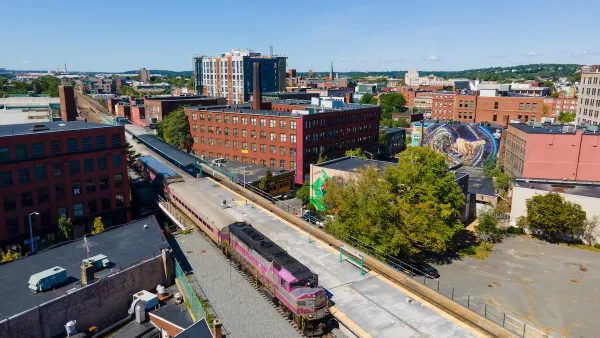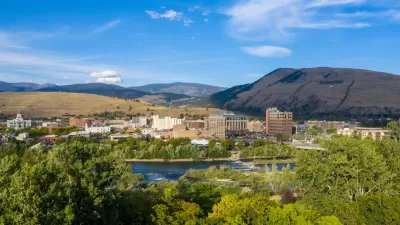Land use reform bills that gained bipartisan support in the Montana legislature were strongly opposed by Colorado Republicans.

Writing in The Colorado Sun, Elliott Wenzler questions why Montana legislators were able to push through zoning and land use reforms that failed in the Colorado legislature. “The answer is as complex as the policies themselves, but it mostly boils down to how each state views the argument that local governments should have the final say in how land is used.”
Local control, property rights, and the free market are sacrosanct values in both states, Wenzler writes. “For Montana Republicans, however, the new laws are seen as a way to increase property rights while allowing the free market to address a mounting problem that’s displacing longtime residents of the state.”
In Colorado, the concern over the loss of local control came to the forefront and the issue became divided along partisan lines. “Ultimately, the Colorado measure, Senate Bill 213, died without reaching a vote in the final hours of the 2023 legislative session because of universal opposition from Republicans and a lack of support among Democrats — who hold big majorities in the House and Senate.” According to Sen. Barbara Kirkmeyer, “I don’t think there’s any appetite for preemption or mandates” among Senate Republicans.
FULL STORY: Why could Montana Republicans reshape land use but Colorado Democrats couldn’t?

Planetizen Federal Action Tracker
A weekly monitor of how Trump’s orders and actions are impacting planners and planning in America.

Congressman Proposes Bill to Rename DC Metro “Trump Train”
The Make Autorail Great Again Act would withhold federal funding to the system until the Washington Metropolitan Area Transit Authority (WMATA), rebrands as the Washington Metropolitan Authority for Greater Access (WMAGA).

The Simple Legislative Tool Transforming Vacant Downtowns
In California, Michigan and Georgia, an easy win is bringing dollars — and delight — back to city centers.

In These Cities, Most New Housing is Under 441 Square Feet
With loosened restrictions on “micro-housing,” tiny units now make up as much as 66% of newly constructed housing.

Albuquerque’s Microtransit: A Planner’s Answer to Food Access Gaps
New microtransit vans in Albuquerque aim to close food access gaps by linking low-income areas to grocery stores, cutting travel times by 30 percent and offering planners a scalable model for equity-focused transit.

This City Will Pay You to Meet Your Neighbors
A North Kansas City grant program offers up to $400 for residents to throw neighborhood block parties.
Urban Design for Planners 1: Software Tools
This six-course series explores essential urban design concepts using open source software and equips planners with the tools they need to participate fully in the urban design process.
Planning for Universal Design
Learn the tools for implementing Universal Design in planning regulations.
Smith Gee Studio
City of Charlotte
City of Camden Redevelopment Agency
City of Astoria
Transportation Research & Education Center (TREC) at Portland State University
US High Speed Rail Association
City of Camden Redevelopment Agency
Municipality of Princeton (NJ)





























